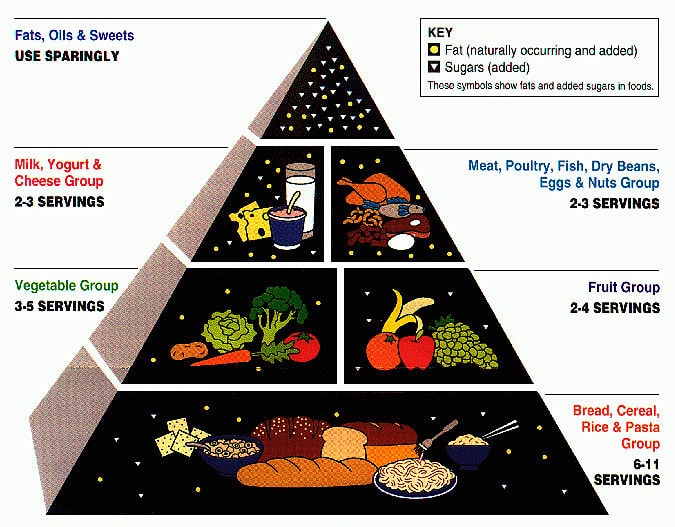This week, headlines screamed across the media that the popular weight loss method known as intermittent fasting is linked to a 91% increase in the risk of dying from heart disease. This comes on the heels of the weight loss medication revolution that has become so popular that drug companies are finding it challenging to keep up with the soaring demand. And then there is Oprah. The famous television celebrity resigned from her position on the board of Weight Watchers ostensibly to have the freedom to discuss the subject of fat. It produced a program that aired on March 18 asking the crucial question: Is obesity a medical condition or something that can be overcome by diet, exercise, and willpower?
 The answer at this point appears to be yes and yes. Obesity experts say weight problems can be categorized as a spectrum of medical issues. Much like the autism spectrum, there is not a one-size-fits-all answer. For some, being overweight is a disease, and for others, it is not. This may be why lifestyle changes work for some people but not for others and why medical treatments are needed in some cases but not in others.
The answer at this point appears to be yes and yes. Obesity experts say weight problems can be categorized as a spectrum of medical issues. Much like the autism spectrum, there is not a one-size-fits-all answer. For some, being overweight is a disease, and for others, it is not. This may be why lifestyle changes work for some people but not for others and why medical treatments are needed in some cases but not in others.
For those considered to have the disease, experts say it begins in the brain and is manifest as an obsession with food: These people spend their time thinking about eating and rarely feel full. To them, food is the answer to a constant compulsion to eat. This medical conclusion was reached at least ten years ago, but without any classes of medications available to combat it, the designation was not popularized.
Treating Fat with Meds
Enter Ozempic, Wegovy (semaglutide), Mounjaro, and Zepbound (tirzepatide): pharmaceuticals found to successfully control the disease of obesity in some, though not all. A number of patients have reported uncomfortable side effects that caused them to stop taking the medication, while others say that it just wasn’t working. However, this is more of an exception than the rule, and even those who have found one of the meds unsatisfactory appear willing to try another.
Meanwhile, lawsuits against the two drug manufacturers of these medications – Novo Nordisk and Eli Lilly – are mounting. At least 55 cases have been filed and assigned to a federal judge in Pennsylvania. This is an unusual move, but it’s due to the fact that there are so many similar cases across the country. Complaints about the drugs are that patients were not adequately warned of severe side effects like gallbladder failure and paralyzed stomachs.
What cannot be said about these pharmaceuticals is that they are new and untested. They bear different names, but glucagon-like peptide-1 (GLP-1s) have existed for approximately 18 years. Doctors prescribed them for diabetics, primarily to lower blood sugar levels. A spokesperson for Novo Nordisk pointed to the lengthy safety profile of semaglutide, vigorously defending it in a Law & Crime article as “extensively examined in robust clinical development programs, large real world evidence studies and has cumulatively over 9.5 million patient years of exposure.” The pharmaceutical battle may be raging, but it is not the only skirmish in the war on fat.
The Intermittent Fasting Debate
One method of weight loss that has become increasingly popular is limiting food to certain times a day, known as intermittent fasting. This week, a study came to light that connected this weight loss method with a 91% higher risk of heart attacks.
The American Heart Association appears to have bumped into this finding when they asked people about their eating habits over two days. Ever since the ominous headline came crashing into the public square, some obesity experts have questioned this connection between heart health and intermittent fasting, saying “there was room for potential inaccuracies” and that a more specific study needs to be conducted before such a claim is made.
Shaming and Claiming
In the last century, proper nutrition became a popular field of study, resulting in something called the food pyramid. This illustration maintained that fats were bad and carbs like bread and cereal were good. The pyramid first appeared in Sweden and burst on the US scene in the 1970s when the US Department of Agriculture adapted and then adopted it as a recommended nutritional lifestyle. However, as time went on and more research was conducted, the pyramid crashed into a house of cards when it was discovered that carbs were found to cause people to gain weight while consuming more fats and proteins positively affected the battle of the bulge.

(Photo by USDA/Corbis via Getty Images)
Before long, overweight Americans were going in another direction entirely by trying diets high in fat and protein and low in carbs. While that may have worked for some, it did not solve the issue – otherwise, the US would not be listed as number 36 out of 200 countries for obesity. Thus, the war on excess weight has been many-faceted and elusive. Perhaps that is because there is not one simple answer for everyone who is overweight. What works for one may not be effective for another. While there is no magic bullet out there that will slay the obesity dragon, those who work hard to lose weight should be commended for their efforts rather than shamed for a supposed lack of willpower.
This brings us full circle: Why are some people prone to gaining weight when others are not? We still don’t have all the answers, but we are trying to figure it out. About the only thing we know for certain is that lifestyle changes in diet and exercise are part of the solution, but not the whole answer.




